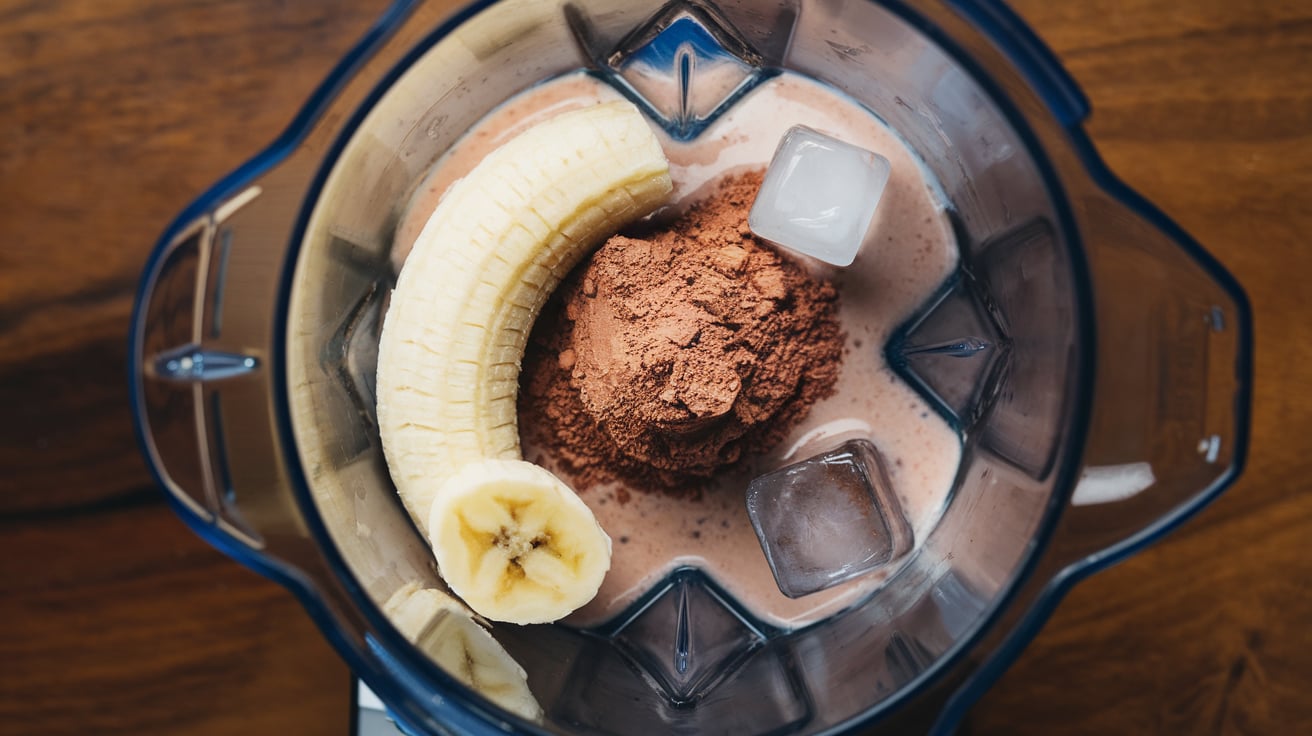Is 2 Scoops of Protein Too Much?
One of the main components of a healthy diet is protein. Proteins also help with weight loss and muscular growth.
Proteins are essential for maintaining good health in general. Understanding the body’s and objectives’ specific protein requirements is essential.
But, Is 2 scoops of protein too much? In short, it is. You should not intake excessive amount of protein.

Why Might Consuming 2 Scoops Be Considered Excessive?
The following are some possible dangers linked to eating too much of protein.
- Kidney Strain: Consuming a lot of protein may stress the kidneys, particularly in people who already have kidney problems.
Eating too much protein puts more strain on the kidneys. This might make the condition of the kidneys worse in those who are vulnerable.
- Dehydration: In order to properly process extra protein and eliminate waste, more water is needed.
Dehydration can also result from having a lot of protein without drinking enough water. It puts stress on the kidneys and weakens overall wellness.
- Bone Health: According to several studies, consuming a lot of protein may cause the bones to lose calcium. In the long run, this could reduce bone density.
Conversely, this raises the chance of bone fractures and osteoporosis.
- Digestive Issues: Taking a lot of protein might cause constipation and gas in the digestive tract.
This is especially frequent when there is an inadequate intake of fiber from grains and vegetables in relation to protein intake.
- Weight Gain: You may customize the shortcut that you have chosen by selecting it from the customization
- Nutritional Imbalances: Overemphasizing the consumption of protein might result in deficiencies in other vital nutrients.
An excessively high protein diet may not provide enough of the other essential dietary components.
What Alternatives Are There for Taking Two Scoops of Protein?
If you are wondering, “Is 2 scoops of protein too much?” the answer is yes. Here are a few alternate choices you can have instead of 2 scoop daily protein intake:
Greek Yogurt: A great source of protein is Greek yogurt. The equivalent item will weigh about 17 grams per 6-ounce serving.
Greek yogurt is also high in B vitamins, calcium, and probiotics.
Cottage Cheese: Another dairy product that is high in protein is cottage cheese. This provides about 14 grams per serving of half a cup.
In addition, cottage cheese contains other nutrients and calcium well.
Eggs: Eggs are a multipurpose source of protein. For every big egg, there are around 6 grams of protein.
Eggs also include a lot of beneficial fats, minerals, and vitamins.
Lean Meats: Protein is abundant in lean foods like turkey breast, chicken breast, and lean beef cuts.
These lean meats include vital amino acids as well.
Fish and Seafood: Seafood and fish are great sources of high-grade protein. They also include omega-3 fatty acids.
Beans and Legumes: Chickpeas, lentils, and beans are plant-based protein sources. These items provide a lot of vitamins, minerals, and fiber.
Tofu and Tempeh: Popular soy-based protein options for vegetarians and vegans are tempeh and tofu.
Quinoa: Whole grain quinoa is free of gluten and has all nine necessary amino acids. This source of protein is comprehensive.
Quinoa is also a good source of iron, magnesium, fiber and other minerals.
Nuts and Seeds: Nuts and seeds are high in protein include almonds, walnuts, peanuts, chia seeds, and hemp seeds.
These seeds include fiber and good fats as well.
Milk: Protein-rich options include dairy milk as well as plant-based milk substitutes like soy and almond milk.
Nevertheless, it should only be used in limited quantities.
What Are The Recommended Serving Sizes For Protein Powder?
The ideal protein intake for fitness might change depending on a number of parameters. Here’s an effective way to figure out how much protein per day is needed to take:
Sedentary Individuals
The recommended daily intake (RDA) of protein for those with sedentary lifestyles is around 0.8 g per kg of body weight.
This satisfies all necessary physiological requirements. Yet might not be enough for people who work out frequently.
Active Individuals
Go for a larger protein intake if you engage in regular activity which is a bit intense. Taking 1.2 to 1.4 g per kg of body weight per day is the optimum amount.
This increased consumption aids in post-workout muscle regeneration and recuperation.
Strength Training and Muscle Building
A larger protein intake may be beneficial if building muscle is your main fitness objective.
To encourage muscular building it is important to know how much protein for building muscles is needed. Aim for 1.6 to 2.2 grams per kilogram of body weight each day.
Endurance Athletes
A larger protein intake may be necessary for endurance athletes to meet their training and recovery demands.
Depending on exercise intensity, it is preferable to consume between 1.2 and 1.6 g per kg of body weight each day.
Older Adults
Higher protein needs may be necessary for older persons to avoid age-related muscle loss (sarcopenia).
Taking 1.2 to 2.0 grams per kilogram of body weight per day is preferable for them.
Weight Loss
Since it helps maintain lean muscle mass, protein is essential for weight loss.
Aim for 1.2 to 1.6 grams of protein per kg of body weight each day if you’re attempting to lose weight. It will maintain muscular mass while promoting fat reduction.
Explore Also:
Creativehouseblog
Dietsheriff
Gigasecurehome
Individual Variations
Always keep in mind that there are individual differences.
It is very important to pay attention to your body’s signals. This will modify your protein consumption in accordance with your fitness objectives.
Is 2 Scoops of Protein Too Much- FAQs
Can someone who doesn’t exercise frequently take protein shakes?
No, unless you have certain dietary needs.
What symptoms indicate a lack of protein in my diet?
You’ll notice changes in your skin, hair, and nails, frequent infections and slow recovery from exercises.
Can I get adequate protein just from foods that are plant-based?
Yes.
What do complete and incomplete proteins mean?
Incomplete proteins are deficient in one or more essential amino acids and complete proteins have all nine of the necessary amino acids.
Is it okay to eat protein right before bed?
Yes.






